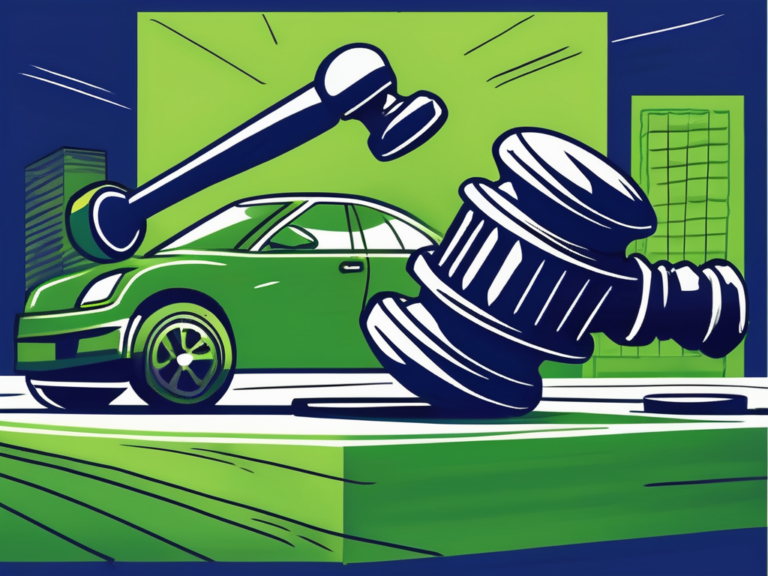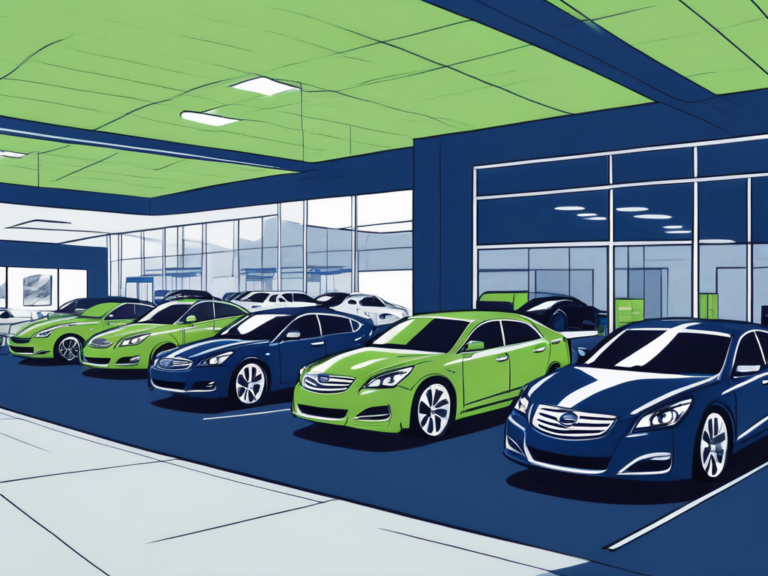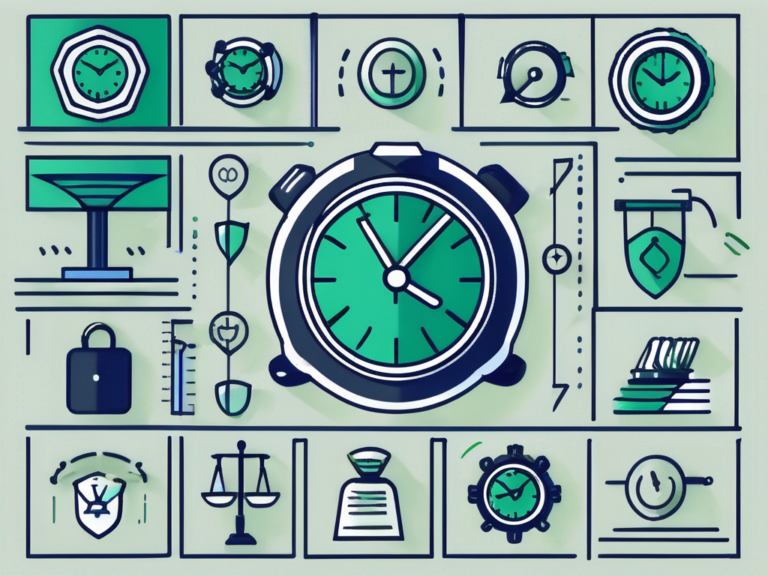Talk to Sales: (401) 200-6026

In today’s highly competitive business landscape, establishing and maintaining strong customer connections is crucial for the success of any RV dealership. One tool that can significantly aid in this endeavor is Customer Relationship Management (CRM) software. The purpose of this article is to explore the importance of CRM for RV dealer owners, delve into its benefits, discuss its implementation, and address challenges faced during CRM adoption. We will also examine the future of CRM in RV dealerships and how dealers can prepare for upcoming developments.
Understanding the Importance of CRM in RV Dealership
Defining CRM and Its Role in Business
CRM stands for Customer Relationship Management, which is a strategy that focuses on building and maintaining positive interactions with customers. It involves capturing, organizing, and analyzing customer data to understand their needs, preferences, and behaviors better. CRM software provides a centralized platform to streamline these activities and enhance customer relationships.
CRM goes beyond just managing customer data; it also helps businesses track and manage customer interactions throughout their journey. From the initial contact to post-purchase support, CRM enables businesses to provide consistent and personalized experiences to their customers.
The Specific Need for CRM in RV Dealerships
RV dealerships operate in a competitive market where customers have plenty of choices. To differentiate themselves and build customer loyalty, RV dealers must prioritize personalized experiences. CRM enables dealerships to gather valuable insights about customers’ previous interactions, preferences, and purchase history.
By leveraging CRM software, RV dealerships can track customer inquiries, test drives, and service requests, allowing them to provide timely and relevant follow-ups. This level of attentiveness not only enhances customer satisfaction but also increases the likelihood of repeat business and referrals.
Moreover, CRM systems in RV dealerships can help automate marketing campaigns and targeted promotions. By segmenting customers based on their preferences and purchase history, dealerships can send personalized offers and recommendations, increasing the chances of converting leads into sales.
CRM also plays a crucial role in managing after-sales support. RV owners often require maintenance, repairs, and parts replacements. With CRM, dealerships can keep track of customers’ service history, ensuring that they receive timely reminders and updates. This proactive approach not only improves customer satisfaction but also helps dealerships build long-term relationships with their customers.
In conclusion, CRM is an essential tool for RV dealerships looking to thrive in a competitive market. By leveraging CRM software, dealerships can gather valuable insights, provide personalized experiences, and build long-lasting customer relationships. With CRM, RV dealerships can stay ahead of the competition and deliver exceptional buying experiences that keep customers coming back for more.
Sell cars on the lot faster with AutoRaptor
Know if we’re the right fit within 10 minutes
Exploring the Benefits of CRM for RV Dealer Owners
Enhancing Customer Relationships
CRM software empowers RV dealer owners to understand their customers on a deeper level. By capturing and analyzing customer data, dealers can anticipate their needs, preferences, and purchasing patterns. This knowledge allows dealers to provide personalized recommendations, targeted offers, and exceptional service, thereby strengthening customer relationships and fostering loyalty.
Streamlining Business Operations
With CRM, RV dealer owners can automate and streamline various business operations such as sales, marketing, and customer service. Automated workflows and communication tools enable efficient lead management, automated follow-ups, and timely communication with customers. This streamlined approach saves time, reduces manual errors, and boosts overall operational efficiency.
Boosting Sales and Profitability
CRM software equips RV dealer owners with valuable insights into customer behaviors and preferences. Armed with this knowledge, dealers can target the right customers with personalized offers and promotions. Additionally, CRM offers reporting and analytics tools that help analyze sales performance, identify sales trends, and forecast demand, enabling dealers to make data-driven decisions and improve sales effectiveness, ultimately leading to increased profitability.
Implementing CRM in Your RV Dealership
Choosing the Right CRM Software
- Define your dealership’s specific CRM requirements, considering factors such as scalability, ease of use, and integration capabilities.
- Research and evaluate different CRM software options that align with your dealership’s needs.
- Request demonstrations and trials of shortlisted CRM solutions to assess their functionalities and user-friendliness.
- Consider seeking recommendations and feedback from other RV dealer owners who have implemented CRM.
- Select a CRM software that best meets your dealership’s requirements and budget.
Training Your Team on CRM Usage
- Arrange training sessions for your dealership’s employees to familiarize them with the CRM software and its various features.
- Provide comprehensive training materials, including user guides and tutorials, to ensure employees can efficiently navigate and utilize the CRM system.
- Encourage employees to ask questions, seek clarification, and participate in hands-on practice sessions to boost confidence and proficiency.
- Monitor employees’ progress and provide ongoing support to address any challenges they may face during the CRM implementation phase.
Measuring the Success of Your CRM Implementation
- Define key performance indicators (KPIs) that align with your dealership’s CRM goals, such as increased customer satisfaction, improved lead conversion rates, or reduced response times.
- Regularly monitor and analyze these KPIs to gauge the effectiveness of your CRM implementation.
- Leverage reporting tools within the CRM software to generate customized reports that provide valuable insights on performance and areas for improvement.
- Periodically review and refine your CRM strategies based on data-driven insights to optimize performance and achieve desired outcomes.
Overcoming Challenges in CRM Adoption
Addressing Common Concerns About CRM
Implementing a new technology like CRM can raise concerns among RV dealer owners. Common concerns include data security, system complexity, and resistance to change. Dealers can address these concerns by thoroughly researching and selecting reputable CRM providers that offer robust security measures, providing comprehensive training and support to ease the transition, and communicating the value and benefits of CRM to gain employee buy-in.
Tips for Successful CRM Integration
- Engage key stakeholders, including employees and management, throughout the CRM integration process.
- Develop a clear roadmap and timeline for CRM implementation, ensuring realistic goals and milestones.
- Regularly communicate the progress and benefits of CRM integration to maintain enthusiasm and support.
- Adapt your dealership’s processes and workflows to align with the CRM system’s capabilities.
Sell cars on the lot faster with AutoRaptor
Know if we’re the right fit within 10 minutes
The Future of CRM in RV Dealerships
Emerging Trends in CRM Technology
The CRM landscape is continuously evolving, and RV dealer owners must stay informed to gain a competitive edge. Some emerging trends in CRM technology include:
- Artificial Intelligence (AI) and machine learning capabilities to automate processes and provide personalized customer experiences.
- Integrated communication platforms that consolidate various communication channels, such as email, phone, and social media, within the CRM system.
- Improved mobility and accessibility through CRM mobile applications, enabling dealers to access customer data and key functionalities on-the-go.
Preparing Your Dealership for Future CRM Developments
To prepare for future CRM developments, RV dealer owners should:
- Stay updated on CRM industry trends and advancements through industry publications, forums, and conferences.
- Regularly evaluate and upgrade CRM software to leverage new features and functionalities as they become available.
- Continuously train and educate dealership employees on emerging CRM best practices to ensure optimal utilization of the CRM system.
- Seek feedback and suggestions from customers regarding their CRM experiences to identify areas for improvement and enhance customer satisfaction.
In conclusion, adopting CRM software is imperative for RV dealer owners aiming to build strong customer connections in a competitive market. CRM empowers dealerships to enhance customer relationships, streamline operations, boost sales, and drive profitability. By carefully selecting the right CRM software, training employees effectively, and measuring success through key performance indicators, dealers can overcome challenges and reap the benefits of CRM integration. Moreover, being aware of emerging trends and proactively preparing for future CRM developments will help RV dealer owners stay ahead of the curve and effectively navigate the evolving landscape of customer relationship management.
Want to improve your sales and move cars off the lot faster? Book a test drive with AutoRaptor to see how our simple dealership CRM software can help you close more deals effectively.
Subscribe to our Newsletter
Resources to help your dealership convert more leads into sales, retain more customers, and market inventory smarter, straight to your inbox every Sunday.




